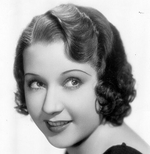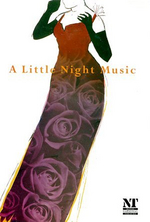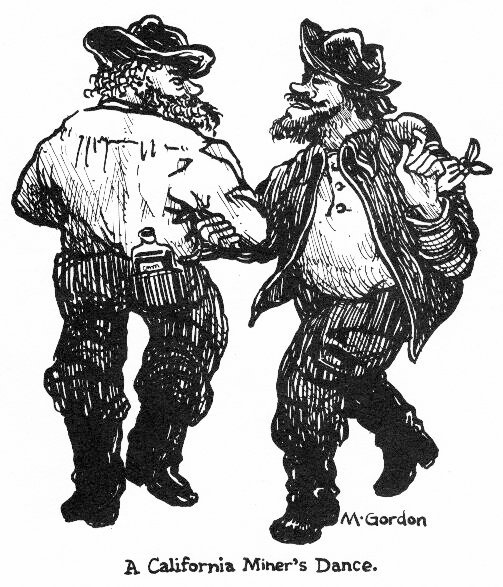Falsettos in London premiere controversy
#25Falsettos in London premiere controversy
Posted: 8/25/19 at 7:56pm
Wick3 said: "joevitus said: "It reminds me of the argument Harvey Fierstein had with the other creators of LaCage over casting a straight actor, George Hearn, as Albin because, whatever the actor's talents, he hasn't had the experience of a life of oppression and the anger built up as a result. Hearn won the Tony for his portrayal, but when later a gay actor took over the role, the other creators acknowledged Fierstein was right--it did play more authentically because of the lived experience.
It would be silly to make actors check boxes as to whether they are the nationality/sexuality/religious upbringing of the characters they play, but someone with the experience of the character can create a richer experience. I can't really blame the actors who signed the petition--it's easy not to care when the issue doesn't effect you and dismiss what upsets others because you are unfazed, and I don't want to fall into that--but I think you cast who gives the best audition, not a checklist of how the role they play coincides withtheir off-stage life."
I didn't know that. This reminds me of casting a straight actor to play one of the leads at the up and coming Broadway play The Inheritance. As a gay man in my 30s, I wished the creatives hadcast an openly gay actor to play the lead role of Eric Glass since I think he'd provide a richer experience especially given thethemes of the play.
But back to the topic, I agree with you that whoever gave the best audition should get the role."
Thank you, I really appreciate that!
jimmycurry01
Broadway Legend Joined: 5/28/05
#26Falsettos in London premiere controversy
Posted: 8/25/19 at 9:39pm
JBroadway said: "jimmycurry01 said: "What ever happened to acting? You know, where people are hired to portray people who are not themselves? Are we really to the point where we have to hire Catholics to portray Catholics, and Jews as Jews. Are we really going so far as to insist that actors' religious beliefs have to match the characters that play? Furthermore, how would a casting director know? I don't make a habit of discussing my religious beliefs with anyone, least of all when trying to get a job.
Does this mean that Jewish people can no longer portray people of other religions? At a certain point, you need to be careful about what you ask for, because once a precedent is set, it's hard to go back.
I understand the need to cast a specific race when the script specifically calls for it, and that is because it is something the audience can physically see; otherwise, I am in favor of complete colorblind casting on stage.
This feels like it is beginning to get a bit out of hand. "
I get the senseyou haven’t read the other posts in this thread...
"
When I had written my post I was interrupted before I could press submit. At the time there were only two other comments here. Submit was pressed hours later, so you are correct, I did not have the opportunity to read many of the comments due to the fact that I would have had to refresh and lose what I had meant to say early in my day.
#27Falsettos in London premiere controversy
Posted: 8/26/19 at 9:02am
Interesting that Alfred Molina read so unauthentic as Tevye (I didn't see his performance live or on any official/unofficial footage); I've been watching the Marvel movies, and he reads as very Jewish in "Spider-Man 2." I only really noted it because the Jewish sensibility and humor was very essential to the conception of so many of the modern Marvel characters created in the 1960s, whether they were explicitly created or coded as Jewish or not. The movies, for the most part, have rejected a lot of that flavor, which is why I noted it so significantly in Alfred Molina's Dr. Octavius/Doc Ock.
Impossible2
Broadway Legend Joined: 3/31/18
#28Falsettos in London premiere controversy
Posted: 8/26/19 at 9:27am
Are they going to release a list of names of all the Jewish people who auditioned and applied for work on this production so we can see the full extent of the massive level of anti-semetic injustice?
#29Falsettos in London premiere controversy
Posted: 8/26/19 at 12:01pm
A personal anecdote . . .
Several years ago my parents were deeply offended by Falsettos. I remember that my dad was especially offended by the implication that Jewish people couldn't play baseball. It was a hard conversation for us because I thought they were being ridiculous and I was young and rebellious, but looking back I have a better appreciation for their point of view. When we talked about the things they found objectionable, they focused on the fact that the actors did not appear to be Jewish. They said that the lyrics about bitching, baseball, etc were clever, even funny, when shared "in house" but when sung by a non-jew they came across differently. Today I understand they were making the distinction between laughing "at" and "with".
This comes despite a predisposition to love the show. My parents were avid theater-goers and we had a personal connection. They were close friends with Jimmy (as we called him) Lapine's parents and we often celebrated holidays with the family.
I lost my parents several years ago, but today, when I'm about the age that they were then, I think I finally understand. At the same time, I still love Falsettos for telling a story that was deeply closeted at the time.
#30Falsettos in London premiere controversy
Posted: 8/26/19 at 12:06pm
That Stanislavski was an idiot. Let's just ban all acting.
From now on I only want to see genuine cannibalistic murderers in 'Sweeney Todd'. Anyone who has not been imprisoned for stealing bread has no right playing Valjean, either!
#31Falsettos in London premiere controversy
Posted: 8/26/19 at 12:41pm
Rumpelstiltskin said: "A personal anecdote . . .
Several years ago my parents were deeply offended by Falsettos. I remember that my dad was especially offended by the implication that Jewish people couldn't play baseball. It was a hard conversation for us because I thought they were being ridiculous and I was young and rebellious, but looking back I have a better appreciation for their point of view. When we talked about the things they found objectionable, they focused on the fact that the actors did not appear to be Jewish. They said that the lyrics about bitching, baseball, etc were clever, even funny, when shared "in house" but when sung by a non-jew they came across differently. Today I understand they were making the distinction between laughing "at" and "with".
This comes despite a predisposition to love the show. My parents were avid theater-goers and we had a personal connection. They were close friends with Jimmy (as we called him) Lapine's parents and we often celebrated holidays with the family.
I lost my parents several years ago, but today, when I'm about the age that they were then, I think I finally understand. At the same time, I still love Falsettos for telling a story that was deeply closeted at the time."
Thanks for sharing this, and I'm sorry your parents are gone.
#32Falsettos in London premiere controversy
Posted: 8/26/19 at 3:34pm
When my Swedish Methodist (now) husband and my Anglo-Scottish evangelical self first saw MARCH OF THE FALSETTOS in the early 1980s, we were blown away by the experience of seeing our own lives portrayed overtly--not in code--on the musical stage. (My husband had been married and we had two kids from that marriage, including a son about the same age as Jason.)
It never crossed our minds to think "these characters are not like us" because they are Jewish.
The MARVIN PLAYS are ultimately about family, and in the third installment even about how religious tradition serves to support family bonds.
Gentiles have families and religious traditions, too. Perhaps the universality of Finn's work won't satisfy all Jews, but he wrote his one-act musicals to emphasize what is common to all families rather than what is unique about Jewish families.
I see no reason why the casting shouldn't reflect the script. But if the cast must be Jewish, why shouldn't we require that Marvin, Whizzer and the lesbians from next door be played by gay people?
Hamilfan2
Broadway Star Joined: 12/28/15
#33Falsettos in London premiere controversy
Posted: 8/26/19 at 4:49pmI think also it depends on the show and as always context is important. I personally think it is ridiculous to say all Jewish characters should always be played by Jewish actors. However, there are certain shows like Fiddler and Parade, those that deal with the persecution of Jews and antisemitism directly, that I more strongly feel should be portrayed by Jewish actors. These are deeply Jewish stories and to have them portrayed by non-Jewish actors feels wrong to me. That being said, while the characters in Falsettos are Jewish, it is not a main plot point and I see no issues in it being presented with a non-Jewish cast. But I do think Falsettos is in a tricky grey-area where it is not a show about the Jewish experience but it does feature characters who are deeply Jewish. So I do understand why some people take issue with it, however I personally do not have a problem with it.
#34Falsettos in London premiere controversy
Posted: 8/26/19 at 5:29pm
GavestonPS said: "When my Swedish Methodist (now) husband and my Anglo-Scottish evangelical self first saw MARCH OF THE FALSETTOS in the early 1980s, we were blown away by theexperience of seeing our own lives portrayed overtly--not in code--on the musical stage. (My husband had been married and we had two kids from that marriage, including a son about the same age as Jason.)
It never crossed our minds to think "these characters are not like us" because they are Jewish.
The MARVIN PLAYS are ultimately about family, and in the third installment even about how religious tradition serves to support family bonds.
Gentiles have families and religious traditions, too. Perhaps the universality of Finn's work won't satisfy all Jews, but he wrote his one-act musicals to emphasizewhat is common to all families rather than what is unique about Jewish families.
I see no reason why the casting shouldn't reflect the script. But if the cast must be Jewish, why shouldn't we require that Marvin, Whizzer and the lesbians from next door be played by gay people?"
I really enjoyed reading this, but one part of your argument puzzles me. I don't think the people who have a problem with non-Jews playing Jews are at all saying there isn't a universality in the subect matter. After all, a black person who would reject a production of A Raison in the Sun (or Purlie) performed by whites in blackface wouldn't be making the claim that the work doesn't have universal meaning. Just that that universal meaning has to be conveyed by actors who belong to the culture depicted. I'm not saying I necessarily agree (and whites in blackface is obviously different than gentiles in Jewish roles), just that there is a difference between "I think only actors who are people of this culture should play these characters" vs. "these characters have universal meaning."
I think you're question about whether the actors and actresses have to be gay is a more interesting question and, as I said above, Harvey Fierstein's answer, based on his response to the original casting in La Cage, would likely be "yes." (I don't agree with him, either.)
#35Falsettos in London premiere controversy
Posted: 8/26/19 at 6:06pm
Knowing someone in this cast, I am certain that the actors are doing their best to portray the truths of these characters and inhabit these roles as they would any other, regardless of a character's sexual orientation, religion, or any other characteristics that differ from the actor's own. This pattern of maligning productions before they've even opened is a bit disturbing. Is it possible that the presentation may actually be sensitive and contain an honest and unoffensive portrayal? Maybe we should hold and wait until we see the finished product. Although I know I know I'm in the minority on this.
ImaginaryManticore
Understudy Joined: 7/18/19
#36Falsettos in London premiere controversy
Posted: 8/26/19 at 7:37pm
Speaking as someone with a Jewish background and family in both the UK and US, the concept of Jewish representation never used to occur to me. Today, with the emphasis on representation among actors, it still strikes me as far less important simply because Jewish actors play non-Jewish characters all the time. It's not about the limited opportunities for talented actors, like most other representation issues. But there have been a few times recently when I've wondered if a character moment would affect me more if I knew it was coming from an authentic place. I'm still working out how I feel about that, but mostly I'm fine to let it go unless it's someone like Tevye in a story like Fiddler on the Roof.
It's important to remember that the letter talks about the whole creative team as well as the cast. I think they have a point about the importance of voices in the rehearsal room. It's good that the response says Finn and Lapine have had input into the production, but I wish they'd also reassured us that they'll also be consulting people with the right knowledge whenever they need to. It only takes a quick question to get it right.
To answer questions about whether the UK is different from the US: I'd be shocked if someone working in the arts in London didn't know any Jews, but they may well have never met any until they lived in London. And I've definitely been in London audiences when Jewish humour didn't land that way it should have (for example in Caroline, or Change, though I've heard that wasn't the case in the revival's original theatre in Hampstead, which is in a relatively Jewish part of London). Also, open antisemitism has been pretty low in the UK until recently, when it's become a significant issue, where much of the conversation is dominated by people debating whether it's even a problem. I can understand why the current climate would make authentic representation more important than normal.
#37Falsettos in London premiere controversy
Posted: 8/26/19 at 9:31pm
ImaginaryManticore said: "
It's important to remember that the letter talks about the whole creative team as well as the cast. I think they have a point about the importance of voices in the rehearsal room. It's good that the response says Finn and Lapine have had input into the production, but I wish they'd also reassured us that they'll also be consulting people with the right knowledge whenever they need to. It only takes a quick question to get it right.”
The sentiment of the letter was VERY much about the creative team/environment of rehearsals and only touches upon casting as a secondary illustration, which is why 80% of the comments on this thread seem to have created their own “controversy”. Actors are paid to act and can very capably convey roles outside their own (religious) affiliations given the right structure and parametres within the production. This was definitely brought up in rehearsals at the Menier production of Fiddler in the Roof, which at least had Jewish representation in the two main leads and from the producer. The open letter just underlines the importance of protecting the intentions of the authors whether that be in the cast OR having a presence in the room to accurately represent the cultural heritage. I’d say having a Jewish director or affiliated consultant is FAR more important to the authenticity of the final show than the casting (of exclusively Jewish actors).
But I agree 100% that those comments would have been better served reacting to a show they had actually seen first and found fault with rather than speculating without merit where issues may not even exist. I work predominately in movies and it’s increasingly the case that the internet has made up it’s mind long before the release date based on rumour and conjecture.
https://twitter.com/adamlenson/status/1164982890515574784?s=21
Videos








